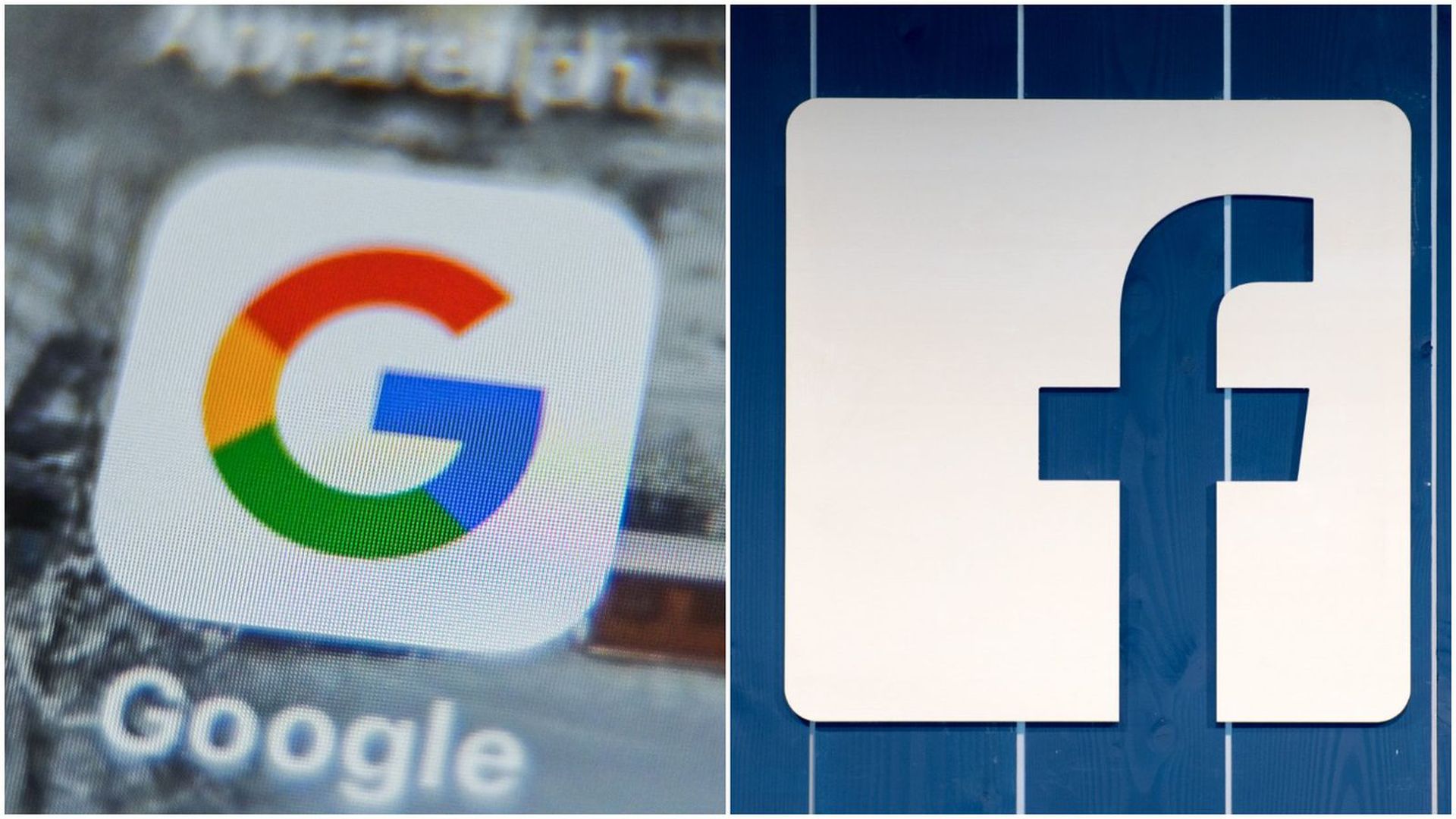Facebook, Google weigh changing political ad policies under pressure
Add Axios as your preferred source to
see more of our stories on Google.

Photos: Denis Charlet/AFP/ Daniel Reinhardt/picture alliance via Getty Images
Google and Facebook are both mulling changes to their political ad policies, sources tell Axios.
Driving the news: There’s no indication at this point that either company will stop running political ads. Rather, both are weighing policy changes that have been floated as compromise ideas, like limiting micro-targeting or disclosing more info about the advertiser.
Why it matters: Google and Facebook are by far the two biggest online advertising firms in the U.S., and already, presidential candidates alone have spent well over $50 million on both platforms so far this year.
- Changes to the platforms' policies could impact that race, as well as hundreds of others at the state and local levels.
- Hundreds of issue advertisers, like non-profits that advocate for climate change or gun reform, could also be impacted.
The big picture: Both companies are under enormous pressure from policymakers and industry leaders to address ways political ads can be manipulated on big automated platforms and to curtail the spread of lies and misinformation through paid advertising.
- Last week, Twitter said that it would ban all political and issue ads on its platform this month, increasing the pressure on its rivals to match its efforts. Other platforms like Pinterest and LinkedIn have also banned political ads.
Between the lines: At this point, both companies are likely more worried about pressure coming from Democrats than from Republicans.
- Republicans are traditionally hostile to government regulation of business and are less inclined to sign on to any effort to force the companies' hands.
- Case in point: The Honest Ads Act, a 2017 Senate bill, has not received enough Republican support to move forward, even though the provisions it called for have mostly already been implemented by the tech firms themselves.
- The recent controversy about falsehood in online ads was triggered by complaints about false statements in ads by President Trump's campaign attacking Democratic candidate Joe Biden.
